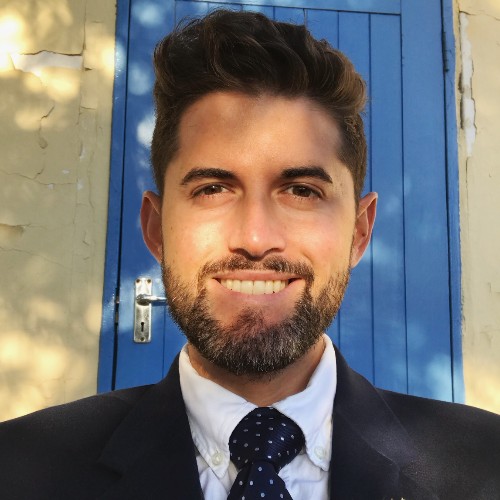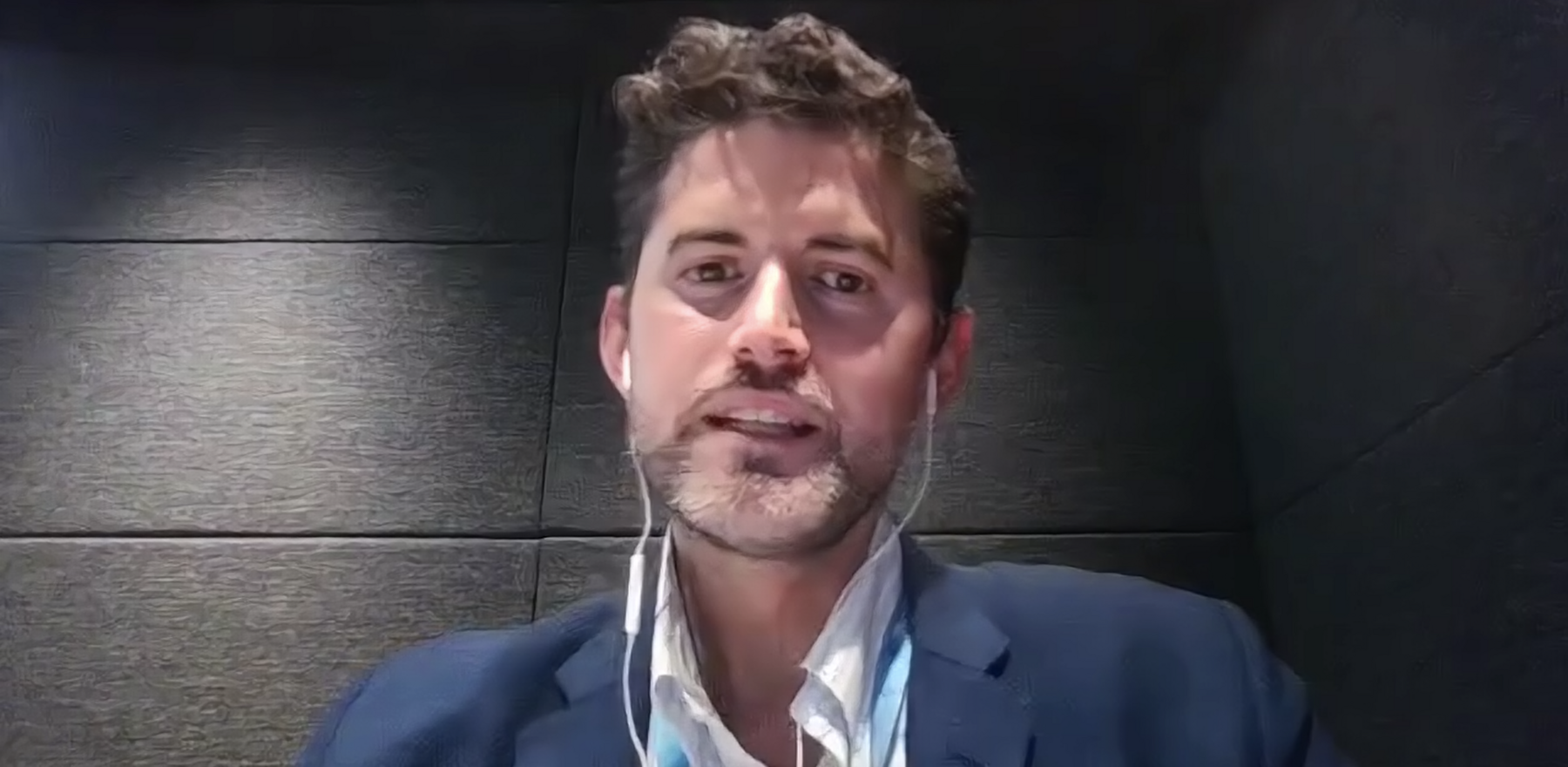Michael Reza Farzi, an official with the World Health Organization, spoke to Lehigh students during an International Education Week event
Lehigh University students gained valuable insights about how to build a global health career during a conversation with a World Health Organization (WHO) official, who shared his personal experiences, discussed global trends, and recommended the best career opportunities to pursue.
Michael Reza Farzi works as executive officer for the WHO Health Emergencies Programme’s Executive Director at the Organization’s headquarters in Geneva, Switzerland. He previously studied abroad in India and France; served in the Peace Corps in Botswana; and completed a practicum in Guinea soon after the Ebola epidemic in West Africa.
“The World Health Organization recognizes health as a state of complete physical, mental and social well-being and not merely the absence of disease or infirmity. As asserted in the preamble of its constitution, the enjoyment of the highest attainable standard of health is one of the fundamental rights of every human being without distinction of race, religion, political belief, economic or social condition” he said.
He spoke on Nov. 16 as part of International Education Week organized by Lehigh’s Office of International Affairs (OIA). Farzi participated in an online event entitled “How to Build a Career in Global Health,” engaging directly with Lehigh students and answering questions.
“I know many of you are interested in pursuing global health career opportunities, and so this is your chance to hear more about it from someone who has had many impressive and unique career opportunities in that field,” said Krista Liguori, Assistant Professor at the Department of Community & Population Health and OIA.
The Importance of Field Work

Farzi has worked at WHO in various capacities since 2017, including with the OpenWHO.org team developing online learning materials. Before his current role in the office of the Executive Directior, he worked with the United States Agency for International Development (USAID) Bureau for Africa on their COVID-19 response during the pandemic. In that capacity, he helped identify hotspots and program funds to provide support for vaccinations, case management, and other responses to COVID-19.
Prior to that work, Farzi served in the Peace Corps, working on HIV response in Botswana in a local government office. He continued that work for nearly two years, until Peace Corps volunteers were evacuated globally in March 2020 due to the emergence of COVID-19. .
“Field experience is really important when pursuing a career in global public health, and it’s particularly impactful when you’re doing longer term projects,” he said. “Really being able to integrate into a community, learn a different language, and be exposed to cultural aspects of health is really important.”
Unique Student Experiences
As an undergraduate student, Farzi studied abroad at Manipal University in South India, as well as Sciences Po in Paris. He stressed the importance and benefits of study abroad opportunities for students, which can allow them to get exposure to different health systems and learn about interventions in lower-income settings.
Liguori agreed, adding that studying abroad provides experiences that might otherwise be unavailable. “While you’re studying, you have an opportunity to try something that a lot of people would never have the ability to do; going into these communities, being welcomed into a family's home, and learning so much about the world.”
In his current position at WHO, he works in a role similar to that of a chief-of-staff at the WHO Health Emergencies Programme: coordinating different activities, managing events and meetings, briefing the Executive Director, and coordinating member state information sessions. He also worked to support the response to the earthquake in Türkiye and Syria earlier this year.
Answering Questions
Fielding questions from Lehigh students, Farzi was asked what global health means for students living on a college campus. He encouraged them to start by thinking locally, becoming aware of local health issues and challenges, and remembering not to lose sight of individual needs, even when considering health issues at the global level.
Farzi was also asked about emerging global health trends that will require attention in the future. He discussed the challenges of conflict impacting access to health, and highlighted specific global outbreaks that don’t receive enough attention, particularly cholera. In 2023 over 667 000 cases and 4000 deaths were reported in 30 countries.
Asked for advice on the best way to break into global health occupations, Farzi stressed the importance of studying, networking, and persistence.
“Apply, apply, apply,” he said. “You’ve just got to put in a lot of applications. It's about timing, and it's about persistence. It took me several years to get into the system, and it just takes that patience and passion to get there.”
